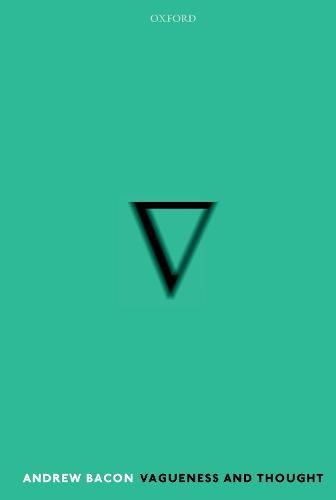Overview
Vagueness is the study of concepts that admit borderline cases: the property of being bald is vague because there are people who are neither definitely bald, nor definitely not bald. The epistemology of vagueness concerns the sorts of attitudes we ought to have towards propositions we know to be borderline. Is it possible to discover whether a borderline bald man is bald? Could two people with access to the same facts reasonably disagree about whether he is bald? Does it matter, when making practical decisions, whether he is bald? By drawing on such considerations, Andrew Bacon develops a novel theory of vagueness in which vagueness is fundamentally a property of propositions, and is explicated in terms of its role in thought. On this theory, language plays little role in explaining the central puzzles of vagueness.Part I of the book outlines some of the central questions regarding the logic and epistemology of vagueness, and criticizes some extant approaches to them. Part II concerns issues in the epistemology of vagueness, touching on the ramifications of vague thoughts on the study of evidence, ignorance, desire, probability theory, and decision theory. By examining the effects of vague information on one's beliefs about the precise, a positive theory of vagueness is proposed. Part III concerns the logic of vagueness, including the interaction between vagueness and modality, vague identity, and the paradoxes of higher-order vagueness. Bacon suggests that some familiar philosophical notions -- including the concept of a fundamental proposition, a possible world and a precisification -- need to be revised.
Full Product Details
Author: Andrew Bacon (Associate Professor of Philosophy, Associate Professor of Philosophy, University of Southern California)
Publisher: Oxford University Press
Imprint: Oxford University Press
Dimensions:
Width: 15.50cm
, Height: 1.90cm
, Length: 23.20cm
Weight: 0.552kg
ISBN: 9780192856081
ISBN 10: 0192856081
Pages: 362
Publication Date: 24 March 2022
Audience:
Professional and scholarly
,
College/higher education
,
Professional & Vocational
,
Postgraduate, Research & Scholarly
Format: Paperback
Publisher's Status: Active
Availability: To order

Stock availability from the supplier is unknown. We will order it for you and ship this item to you once it is received by us.
Reviews
Though I find Bacon's view of vagueness impossible to accept, I still think this is a terrific book. Bacon has a wonderful sense for which issues are substantive and which merely superficial, and in focusing our attention on Rational Supervenience and Indifference, he has opened up some genuinely new questions. In addition to the main line of thought sketched above, the book contains illuminating treatments of many connected topics (for example, the connections between necessity and determinacy). It will richly reward anyone with an interest in its subject. * John MacFarlane, Philosophical Review * This is a remarkable book. I accept its main thesis, that propositional vagueness is more fundamental than sentential vagueness. I am in favor of treating vague beliefs in probabilistic terms, and the investigation of how we should reason with vague beliefs and vague desires is a valuable project. There has been relatively little work on this, and Bacon's book goes much further than any before. The idea of using Jeffrey conditioning to explain the impact of vague beliefs is an excellent one. * Dorothy Edgington, Journal of Philosophy *
Author Information
Andrew Bacon is Assistant Professor of Philosophy at the University of Southern California. His work typically applies the methods of philosophical logic to issues in metaphysics, epistemology, and the philosophy of language. Recently he has worked on vagueness, the semantic paradoxes, and logic and epistemology of conditional statements.




